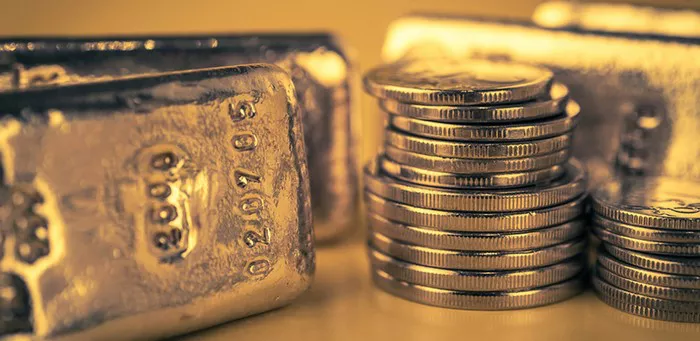In a recent survey, gold emerges as the favored hedge among investors anticipating a potential return of Donald Trump to the White House. According to the survey, conducted among 480 respondents, proponents of gold as a safe haven outnumber those favoring the US dollar by a two-to-one margin. Over 60% of participants believe that the dollar would weaken if Trump secures another presidential term.
During Trump’s previous tenure, a Bloomberg gauge indicates the dollar depreciated by more than 10%, while the spot price of gold surged over 50%. Analysts attribute this trend to Trump’s economic policies, including tax cuts, tariffs, and regulatory adjustments, which are perceived to be inflationary and could prompt the Federal Reserve to raise interest rates.
Gregory Shearer, an analyst at JPMorgan Chase & Co., highlighted several factors supporting gold’s potential rally, such as geopolitical tensions, increasing US deficit, central bank diversification, and inflation hedging. These factors, he argues, could intensify under a scenario dubbed “Trump 2.0” or a Republican-dominated Congress after the November elections.
The sentiment among survey respondents underscores concerns about market disruptions, trade tensions, and escalating national debt under another Trump administration. The ongoing Covid-19 pandemic and near-zero federal funds rate have also fueled demand for gold, despite its lack of yield, pushing prices to record highs in recent years.
While some economists anticipate a stronger dollar under Trump due to his tough stance on tariffs and fiscal policies, others foresee continued dollar weakness amid sustained deficits and lower interest rates. This divergence in views underscores uncertainty among investors regarding the future direction of the US currency.
Looking ahead, with the Federal Reserve expected to initiate interest rate cuts and central banks increasing their gold holdings to diversify away from the dollar, two-thirds of survey respondents predict a potential erosion of the dollar’s global reserve status under a Trump re-election scenario.
The survey, conducted from July 22 to July 26, included insights from portfolio managers, economists, and retail investors worldwide, reflecting diverse perspectives on the potential economic impacts of a Trump presidency continuation.


